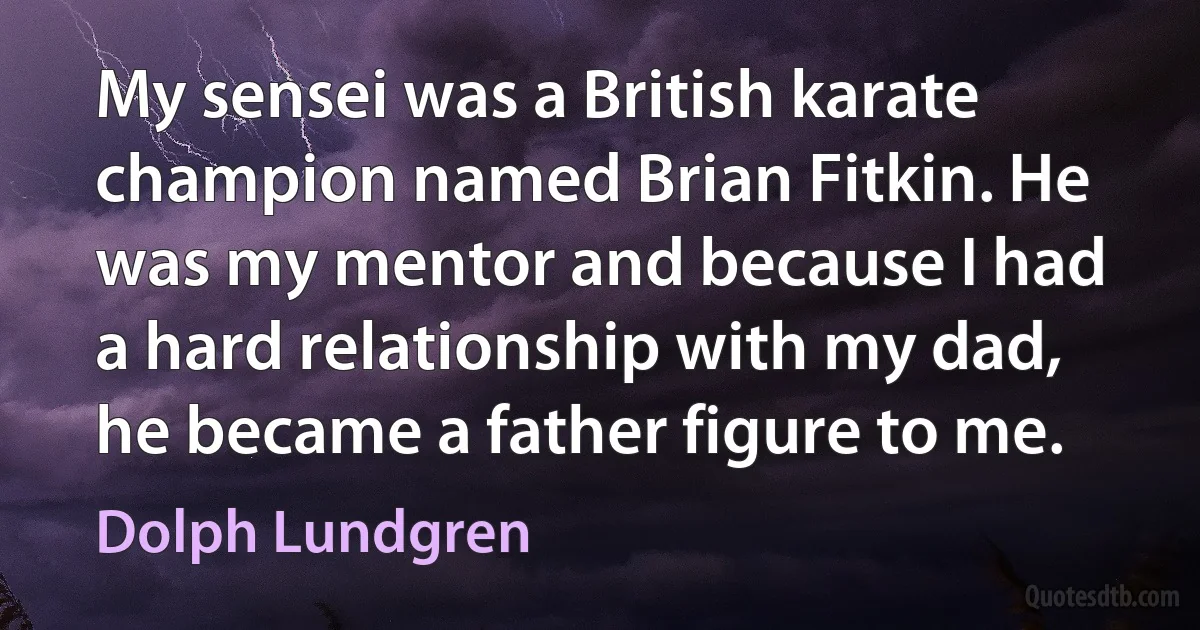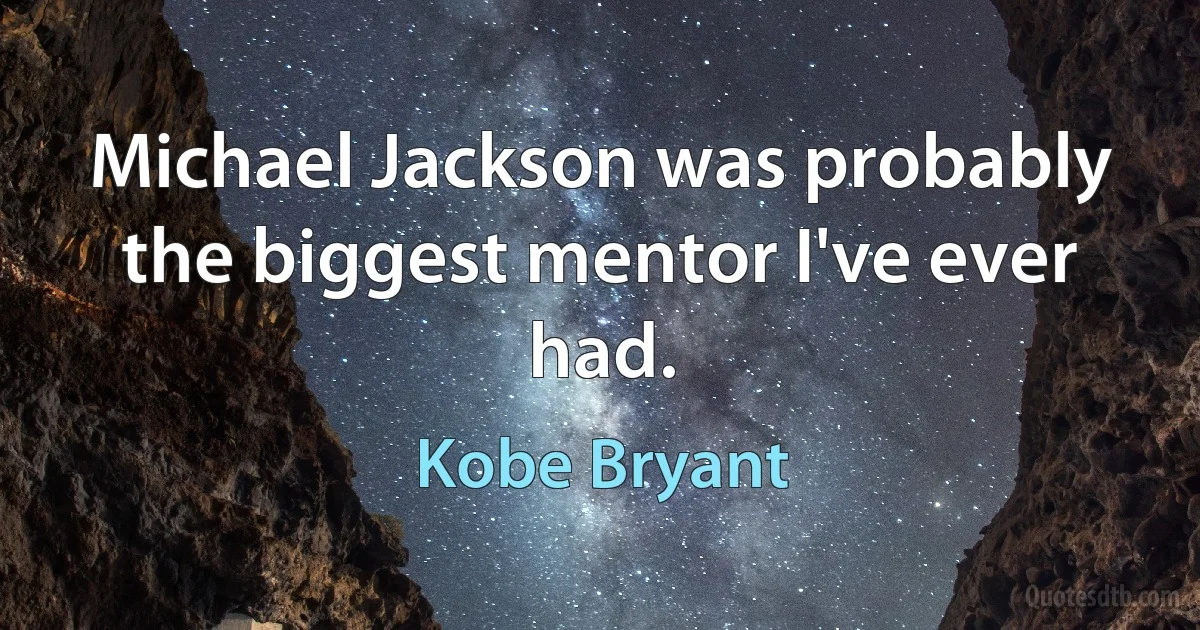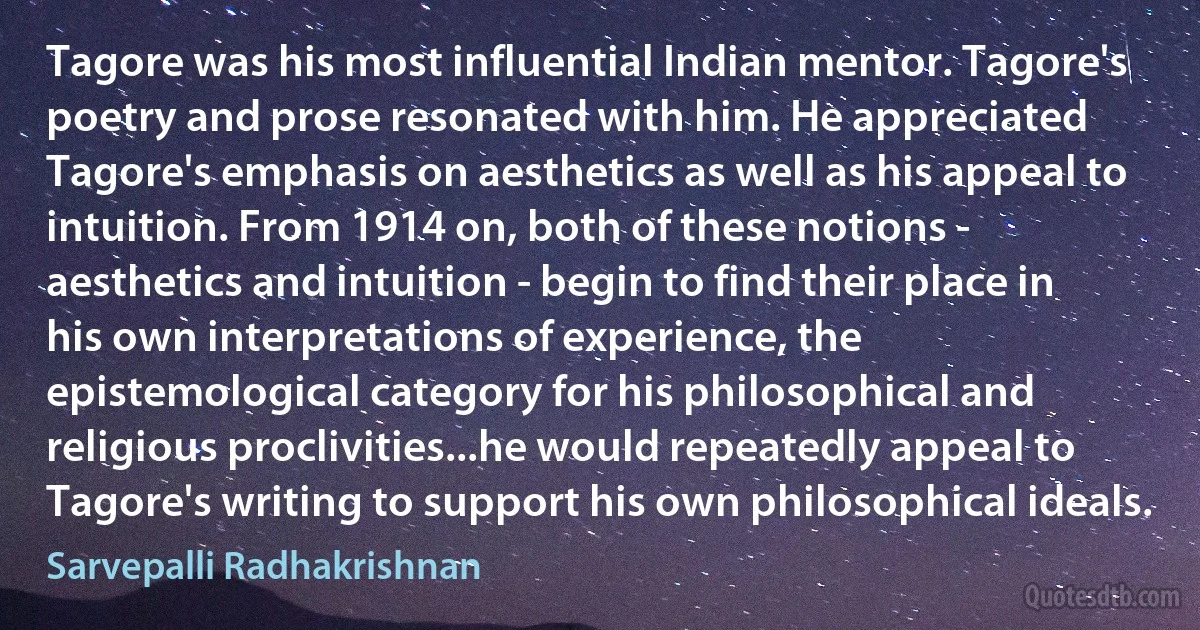Mentor Quotes - page 5
I'm excited about the new judges on 'American Idol.' Jennifer Lopez was a real mentor to me my season and I admire her so much. And I kind of have a crush on Steven Tyler. It's going to be interesting to see is one person going to stand out among the judges or if everyone will sort of be equal.

Jordin Sparks
Mark: Yeah, I'm sorry to say, I'm agreeing with Dicko again. There's a mentor of mine who used to say to me, you've got to have a body of fire, mind of ice so that you're mind is going through all of those strange timings and knowing where it's got to go but outwardly you just seem to be going and being released, being free. We see too much of the work with you on that song. We're seeing too much of it. We're seeing too much of the worry and the thinking and not enough of the release. You saw too much of it to me but you know, once again your risk taking is fantastic. I really admire you for that.

Hayley Jensen
In 1904, he entered Madras Christian College was trained in European philosophy was introduced to the philosophies of Berkeley, Leibniz, Locke, Spinoza, Kant, J.S. Mill, Herbert Spencer, Fichte, Hegel, Aristotle, and Plato among others. He was also introduced to the philosophical methods and theological views of his MA supervisor and most influential non-Indian mentor, Professor A.G. Hogg.

Sarvepalli Radhakrishnan
Taft was cheerful, friendly, a typical hail-fellow-well-met with an infectious chuckle. Always popular, he had many friends but, surprisingly, few intimates. "One of the astonishing things about Taft's four years in the White House," wrote biographer Henry F. Pringle, "was the almost total lack of men, related or otherwise, upon whom he could lean... For the most part he faced his troubles alone." He was not happy as President. The break with his predecessor and former mentor, Theodore Roosevelt, weighed heavily on his mind; he was often irritable, depressed, at least once in tears. He regained his good spirits in retirement and as chief justice.

William Howard Taft
He was over all the time, all the time! He would stand outside and playfully throw rocks at the house. Roberto would always tease me. He liked to tell me that I couldn't cook. I couldn't cook. He and Curtis would sit there and eat half-cooked food, playing cards and drinking beer, pop, lemonade, whatever. Roberto loved to joke, he was really just a big kid. [...] Roberto and Curt were very close. Roberto would stay at the house all day long until it was time to go to the ballpark. Roberto and Curt would sit around and talk and joke in Spanish. Robert [sic] would look at me with that boyish smile ... he liked to make me think they were joking about me, or talking about some other girl. But he would always break down laughing, and tell me what he and Curtis had been saying. Roberto naturally gravitated to someone who could understand him. Even though we were all kids back then, I think Roberto looked at Curtis as something of a mentor.

Roberto Clemente
For me as a British Conservative, with Edmund Burke the father of Conservatism and first great perceptive critic of the Revolution as my ideological mentor, the events of 1789 represent a perennial illusion in politics. The French Revolution was a Utopian attempt to overthrow a traditional order - one with many imperfections, certainly - in the name of abstract ideas, formulated by vain intellectuals, which lapsed, not by chance but through weakness and wickedness, into purges, mass murder and war. In so many ways it anticipated the still more terrible Bolshevik Revolution of 1917. The English tradition of liberty, however, grew over the centuries: its most marked features are continuity, respect for law and a sense of balance, as demonstrated by the Glorious Revolution of 1688.

Margaret Thatcher



